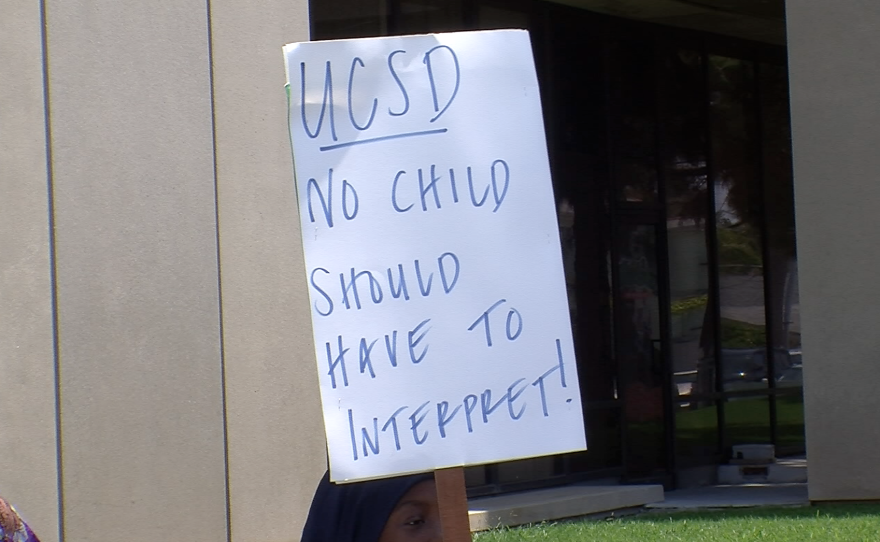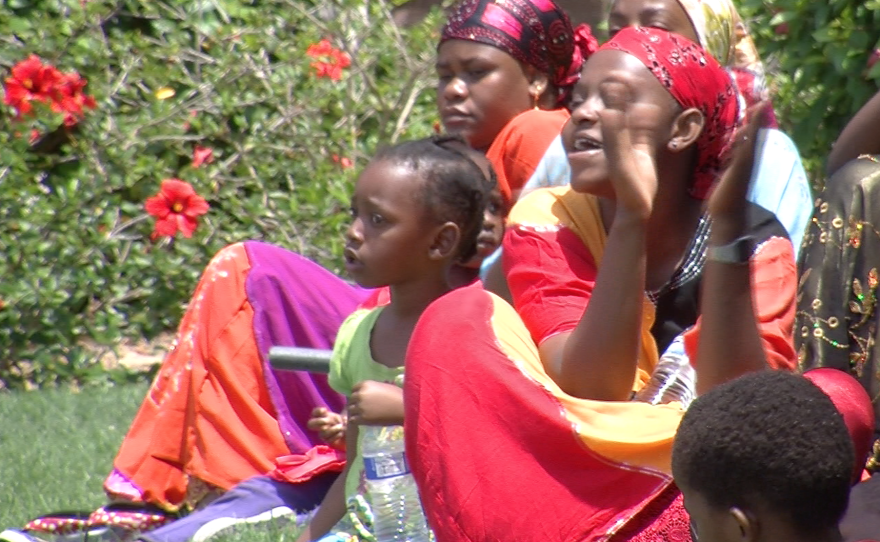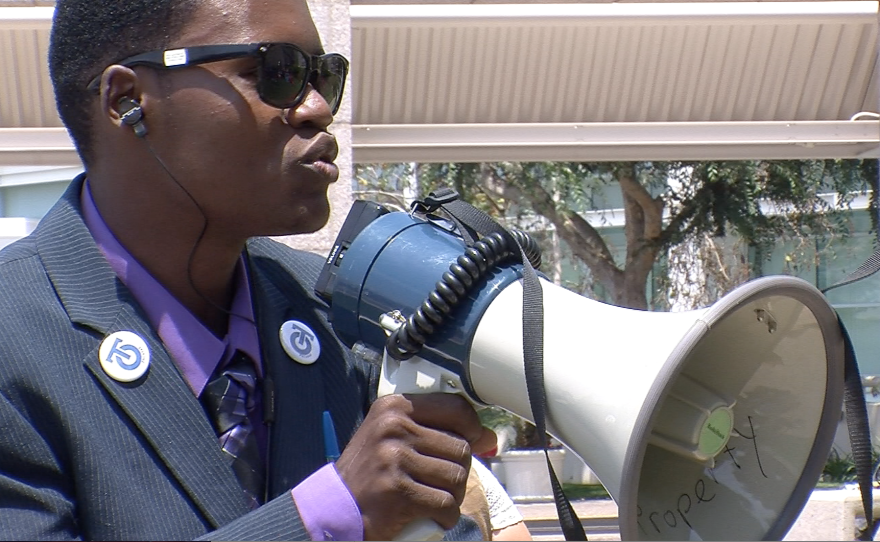
A group of refugee patients gathered outside UCSD Medical Center in Hillcrest Tuesday carrying signs that read, “To speak to me is to heal me,” and “No child should have to interpret.” Each slogan was translated into Swahili or Somali, a service the patients say they’re not getting enough of from the hospital.
The group assembled as part of a statewide effort to improve interpretation in medical settings. Interpreting for California, which is linked to AFSCME, a national public employees union, and nonprofit Mid-City CAN’s Access to Healthcare group have been collecting stories from East African, Burmese, Latino and Chinese patients who say poor communication with doctors has but them at risk.
Interpreting for California organizer Christina Griffin said the group decided to protest in front of UCSD because more and more patients are coming forward with complaints about the health system.
“At the Shiley Eye Center, we’ve heard that patients have been told not to schedule appointments if they don’t have interpreters,” Griffin said. “We’ve also heard of procedures happening without the consent or the full understanding of the patient – you know, someone signing a paper but not knowing what they’re signing. And also people under the age of 18, and in some circumstances younger than teenage age, being used as interpreters.”
It is illegal for medical providers to rely on children to translate. All must provide access to language services.
UC San Diego spokesman Aaron Byzak said the hospital is in compliance with state and federal laws on interpretation. He said the hospital has five Spanish-language interpreters, a 24-hour phone service that offers interpretation in 200 languages and a teleconferencing program in 150 languages.

“We actually have a very robust interpreters program, but we’re always interested in improving if there are challenges,” Byzak said.
A bill making its way through the state Legislature would improve access to face-to-face interpretation by reimbursing the service through Medi-Cal. Currently, providers often don't have a way to pay for interpreters. A separate bill would require pharmacies to use translated prescription drug labels already available through the state’s Board of Pharmacy.








